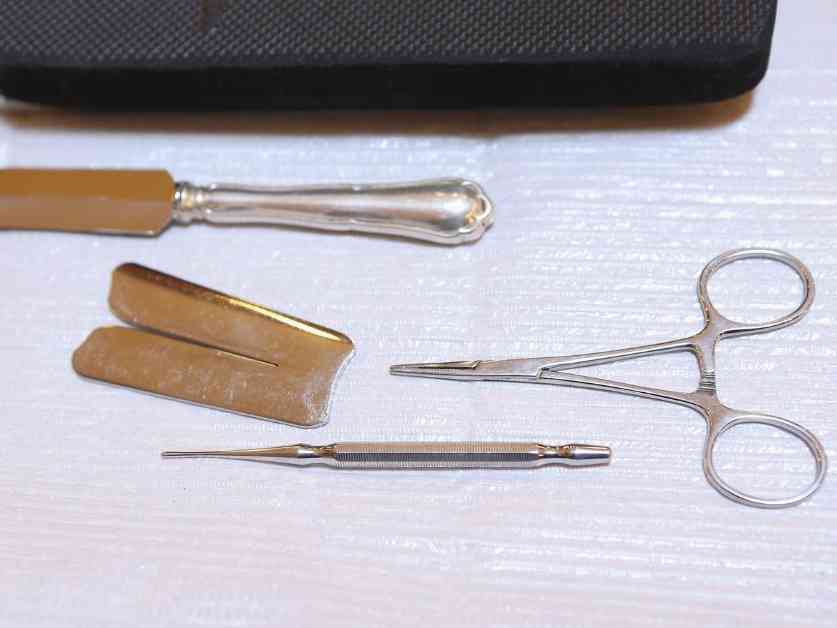Risks of Rusty Medical Tools in Circumcisions: Pain Relief Concerns
A former doctor is currently on trial at Southwark Crown Court for using rusty medical tools in circumcisions, causing unnecessary pain and suffering to young boys. Mohammad Siddiqui, 58, stands accused of failing to properly sterilize his medical toolkit, leading to serious health risks for his patients. The court heard that Siddiqui used a rusty instrument with a “hook and serrated wheel showing signs of rust… and skin on it” during the procedures, highlighting the dangers of unclean and outdated medical equipment in medical practices.
Failure to Provide Adequate Pain Relief
In addition to using rusty medical tools, Siddiqui also failed to provide sufficient pain relief to his young patients undergoing circumcisions. Despite using anaesthetic cream on some of his patients, Siddiqui often began the procedures just “a few minutes” after administering it, leading to increased pain and discomfort for the boys. One 15-year-old boy who was circumcised by Siddiqui experienced a significant amount of bleeding and had to be rushed to the hospital for emergency surgery. The boy’s mother attempted to contact Siddiqui for help, but he refused to answer her calls, leaving the family in a state of distress and uncertainty.
Profiteering at the Expense of Patients
Prosecutors revealed that Siddiqui carried out the circumcisions “as quickly as possible to maximize profits,” demonstrating a clear disregard for the well-being of his patients. He was found to have cut corners and neglected proper sterilization procedures, putting the young boys at risk of infections and other complications. Siddiqui’s unethical practices not only caused unnecessary pain and suffering but also endangered the lives of those he was supposed to care for. The court heard that Siddiqui charged varying amounts for the procedures, with older patients like the 15-year-old boy being charged significantly more than younger children due to their age.
Despite being suspended and later struck off by the General Medical Council, Siddiqui continued to carry out circumcisions in homes within the Muslim community, further highlighting the lack of oversight and accountability in some medical practices. His actions not only violated medical ethics but also put the reputation of healthcare professionals at stake, raising concerns about the safety and quality of care provided to patients in such settings.
Insufficient Sterilization Practices and Unsanitary Conditions
The discovery of a rusty medical instrument in Siddiqui’s possession raised serious questions about the cleanliness and safety of his medical tools. Police also found a “circumcision immobilizer” in his car, a device considered unacceptable in NHS practice for holding children in place during procedures. Subsequent testing revealed that many of Siddiqui’s instruments had not been properly sterilized, further exposing his patients to the risk of infections and complications. The unsanitary conditions in which Siddiqui carried out the circumcisions posed a significant threat to the health and well-being of the young boys, highlighting the importance of strict hygiene protocols in medical settings.
The trial at Southwark Crown Court continues as Siddiqui faces 39 charges, including 17 counts of actual bodily harm, 14 of child cruelty, and eight of administering a prescription-only medicine between 2014 and 2019. The charges relate to 23 incidents involving as many complainants, underscoring the extent of harm caused by Siddiqui’s negligent and unethical practices. As the case unfolds, it serves as a stark reminder of the risks associated with rusty medical tools and inadequate pain relief in medical procedures, urging for stricter regulations and oversight to prevent such incidents from happening in the future.
In conclusion, the case of Mohammad Siddiqui sheds light on the dangers of using rusty medical tools and failing to provide adequate pain relief in circumcisions. His actions not only caused unnecessary pain and suffering to young boys but also exposed them to serious health risks due to unsanitary conditions and improper sterilization practices. The trial at Southwark Crown Court serves as a wake-up call for the medical community to prioritize patient safety and well-being above all else, emphasizing the need for stringent regulations and accountability in medical practices to prevent similar incidents from occurring in the future.












